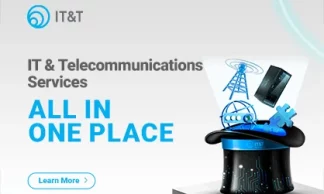Scammers are getting extraordinarily clever at masquerading as governments, banks, travel agents, insurance firms, telcos – and a few might even impersonate individuals you recognize. with reference to the Scamwatch website, Tricks target individuals of all foundations, ages, and pay levels over Australia. There's no one gather of individuals who are more likely to get to be a casualty of a trick, all of us may be a victim of a scam.
Scams succeed as a result they give the impression of being just like the legitimacy and catch you off guard once you’re not expecting it.
So how to protect yourself?
With reference to Scamwatch, there is some advice for your protection:
1- Be aware of the actual fact that scams exist. once managing uninvited contacts from individuals or businesses, whether or not it's over the phone, by mail, email, in person, or on a social networking website, continually think about the chance that the approach is also a scam. Remember, if it's too good to be true, it most likely is.
2- understand who you're dealing with. if you've simplest ever met a person online or are uncertain of the legitimacy of an enterprise, take some time to do a chunk more research. Do a Google picture search on snapshots or seek the internet for others who can also have had dealings with them. If a message or e-mail comes from a friend and it seems unusual or out of a person for them, contact your friend immediately to check that it turned into truly them that sent it.
3- Do not open suspicious texts, pop-up home windows, or click on hyperlinks or attachments in emails – delete them: If uncertain, confirm the identity of the contact via an independent source like a telephone eBook or online check. do not use the details furnished in the message sent to you.
4- Don't reply to phone calls regarding your pc requesting remote access although they mention a well-known company. Scammers can typically ask you to turn on your pc to repair a bug or install a free upgrade, which is truly malware that will offer them your passwords and private details.
5- hold your private information secure. placed a lock for your mailbox and shredded your documents and other critical files earlier than throwing them out. hold your passwords and pin numbers in a secure condition. Be very cautious of the private information you share on social media. Scammers can use your records and pics to create a fake identification for a rip-off.
6- hold your cell gadgets and computer systems secure. usually use password protection, don’t share access with others (such as remotely), upgrade security computer programs, and backup content material. shield your Wi-Fi network with a password and do not use public computer systems or Wi-Fi hotspots to access online banking or provide private data.
7- pick your passwords cautiously. select passwords that might be tough for others to guess, and replace them frequently. A good password must consist of a combination of upper and lower-case letters, numbers, and symbols. Don’t use the one password for every account/profile, and don’t disclose your passwords to others.
8- check your privacy and protection settings on social media. if you use social media, like Fb, be cautious who you connect to and learn how to use your privacy and protection settings to make sure you are secure. if you understand suspicious conduct, clicked on junk mail, or have been scammed online, take steps to protect your account and make sure to report it.
9-watch out for any information requests. Do not pay money or provide credit card information, online account information or copies of private documents to anybody you don’t recognize or trust.
don't conform to transfer money or goods to third parties: money laundering is a criminal offence.
10- Scamwatch also asks people to Be cautious of uncommon fee requests. Scammers will regularly ask you to use an uncommon payment method.
11- Be cautious whilst purchasing online. watch out for offers that is too good to be real, and usually use an online shopping service that you can trust. Doublecheck everything in the case of digital currencies (like Bitcoin) because you couldn’t get your money back again after you send it.
these are only some of the scam techniques scammers can also use attempt to get extra money from you so new methods can be pretty different from the original tricks.





